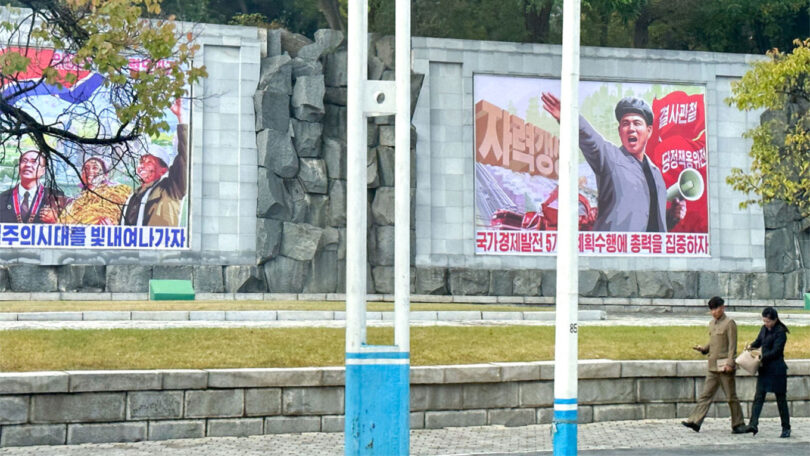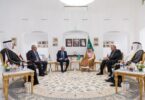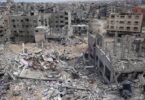Anthony V. Rinna
Russia’s economic relationship with North Korea seems poised to rebound after years of sanctions and border closures. This revitalized partnership has scope to expand into trading natural resources including metals and critical minerals, which have become increasingly weaponized in geopolitics. Such a move could be highly consequential if it is in fact possible.
Following Kim Jong Un’s visit to the Russian Far East this September, North Korean Premier Kim Tok Hun met with Russia’s Natural Resource Minister, Alexander Kozlov, in Pyongyang. The meeting, which was the first since 2019, saw the countries reach a tentative agreement to jointly explore and extract natural resources including rare earth minerals and iron ore.
Moscow’s current interest in North Korea’s natural resources has deep historical roots going back to the earliest days of the DPRK’s very existence. When Stalin learned in 1950 that the North was planning to invade its southern neighbor, he ordered his officials to offer Pyongyang military assistance in return for access to the country’s lead reserves. It is worth remembering that discussions between Moscow and Pyongyang frequently prove fruitless. Plans to build a gas pipeline running from Russia across the entire Korean Peninsula have been repeatedly hobbled by sanctions against Russia and the DPRK and inter-Korea tensions may never produce results. The $20 billion Moscow planned to invest in modernizing North Korea’s railway network ultimately proved fruitless.
Furthermore, the inability of outsiders to verify the nature and extent of North Korea’s natural resources, begs the question of how workable any North Korea-Russia cooperation in resource extraction really is. Even though Russian elites have traditionally enjoyed closer contact with North Korean officials than most other states, they still face significant difficulties in acquiring information about the country. Following November’s meeting between Kim Tok Hun and Alexander Kozlov, the Russian government acknowledged that it was still waiting for Pyongyang to provide geological maps before any joint exploration and extraction could take place.
The DPRK’s lack of transparency highlights a contrast between the rising political ties between Moscow and Pyongyang with the practicality of actually enacting concrete economic cooperation. Yet the fact that Moscow has made such proposals for decades seemingly indicates that Russia feels it has reason to believe such cooperation would be viable. In any case, the potential for North Korea-Russia cooperation in the field of natural resources extraction is fraught with risk regarding sanctions against North Korea and compliance on the part of Russia’s foreign trading partners therein.
Around the time North Korean and Russian officials agreed to pursue cooperation in natural resource extraction last month, the US raised concerns that Russia is helping North Korea build its weapons program despite sanctions. Similarly, the US recently designated North Korean and Russian companies as “foreign entities of concern” concerning the acquisition of critical minerals used for manufacturing technologies like electric car batteries. Although such designations appear to be primarily aimed at ensuring the United States’ competitive edge over China, Washington’s decision to include both North Korea and Russia indicates that the US sees both countries as players in the competition over natural resources.
Moscow has already faced accusations of laundering North Korean coal exports to Russia. Potentially, Russian companies could acquire other natural resources from the DPRK and sell them to customers who are unaware of the materials’ true origins. North Korea is thought to possess deposits of lithium, a metal that is seeing increasing global demand for use making rechargeable batteries. This so-called “white gold” may have factored into Russia’s decision to invade Ukraine, and could continue to motivate Moscow’s foreign policy even if the country can meet its needs through domestic production by 2030.
Likewise, Russian firms could acquire iron ore for domestic use. This could potentially be done at prices below global standards given that North Korea and Russia have taken steps to conduct their transactions in rubles instead of dollars. Having disguised the true origins of iron ore imports from North Korea, Russia could, as the eighth-largest explorer of iron ore in the world, export iron ore of North Korean origin while passing it off as its own. Uranium is another resource where North Korea and Russia could potentially cooperate. North Korea currently produces amounts of uranium in excess of its current needs and has the capacity to produce even more. Pyongyang is clearly aware of the potential for leverage these resources hold, having reportedly offered Russia exclusive rights to its uranium reserves in exchange for support during the Six-Party Talks over denuclearization.
Despite the war in Ukraine, the US and Europe have continued to purchase uranium from Russia, leaving them exposed if the Kremlin decided to reduce supplies as a political weapon. Should Moscow and Pyongyang reach an agreement for trading uranium, the risk that Russia could include uranium of North Korean origin among its own exports likewise cannot be ignored. Even if the Kremlin doesn’t provide North Korea with a route to circumvent sanctions to the extent that it allows materials from the DPRK to reach markets outside of Russia, the two countries themselves can still benefit from cooperation over natural resources.
Metals and minerals transferred from North Korea to Russia could help Russia continue manufacturing weapons for the war in Ukraine. In return, Russia could provide Pyongyang with the energy it needs to keep its own economy and weapons program afloat. Ultimately, the Kremlin has no interest in instability in North Korea, which has experienced economic contraction for the past three years. Resource cooperation between Russia and the DPRK has not yet proven to be viable. But that has not stopped either country from pursuing it. Now, perhaps more than at any point in time, the possibility for Moscow and Pyongyang to turn warm words into concrete action to subvert the rules-based order is something that the world cannot ignore.







